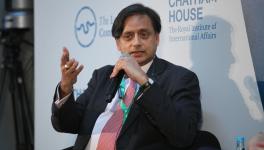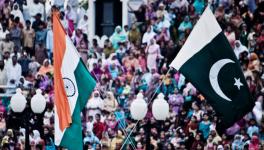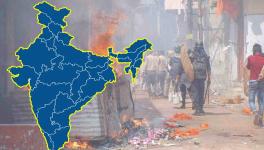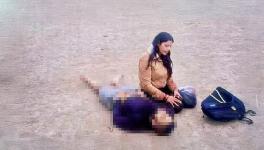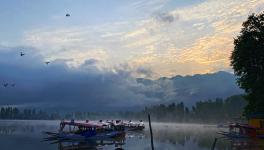Euphoria, Idealism Behind Article 370 Genesis Betrayed
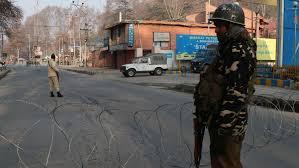
Article 370, as originally envisaged, governed the accession of the princely state of Jammu and Kashmir (J&K) and its relationship with India under the Constitution of India. It formed the basis of Kashmir’s special and autonomous status. The mainstream political leaders of Kashmir, Farooq Abdullah, Mehbooba Mufti and others have warned that revoking the Article would break the relationship between the state and India. The separatists have held, since the outbreak of insurgency in 1989-90, that the Article had already been rendered meaningless through continual amendment.
If it is believed that placing what remains of the state today under central rule, will help address the ongoing violence effectively, this is contrary to the conclusions of the Narasimha Rao government, which ended a long spell of central rule between 1990 and 1996. Based on experience and close study, it came to the realisation that without the support of the public—which despite efforts by a series of outstanding Governors has failed to win—peace was not possible.
History of Special Status
In 1947, Sheikh Abdullah, the unchallenged Kashmiri leader of the time and a devout Muslim, had faced a clear choice. He could either join a Muslim nation or a secular state where Kashmiris would be secure in their distinct identity. His choice was reassured by India’s prime minister Jawaharlal Nehru, who cherished his own Kashmiri descent and had an inclusive vision of what India was to be. Nehru stood in contrast against Mohammed Ali Jinnah, the leader of the newly-emerging nation of Muslims. Jinnah was a cold and distant figure, a modernist who could excite awe but little affection.
At the time of J&K’s accession, in Kashmir itself, Abdullah’s National Conference prevailed with universal support amongst the peasantry. The part of the state where Jinnah’s Muslim League had its support lay across the Pir Panjal, in Mirpur and the old Poonch principality of the feudal state of Jammu and Kashmir. There, the Muslim Conference dominated in an area a large part of which Pakistan today occupies and calls ‘Azad Kashmir’.
Therefore, it is important to remember that the Kashmir freedom movement was a movement to rid Kashmir of despotism. It worked in tandem with the national movement, but was not part of it. It was primarily a Kashmiri movement drawing near-universal Kashmiri support in a state where the Kashmiris were the largest single ethnic group.
Despite efforts by Ramchandra Kak, the prime minister of Hari Singh, the ruler of J&K at the time, Sheikh Abdullah did not support independence and stood steadfast in his demand for an end to the monarchy. India’s Viceroy, Mountbatten, urged Hari Singh not to make a declaration of independence. He conveyed Sardar Vallabbhai Patel’s message that ‘the States Department were prepared to give an assurance that, if Kashmir went to Pakistan, this would not be regarded as unfriendly by Government of India’.
But then the Jammu and Kashmir government faced an uprising by Poonch troops of the British Indian Army’s decommissioned Sixth Punjab Regiment in the border district of Poonch. This was followed by a military rout by invading frontier tribesmen in the state’s frontier town of Domel on October 22, 1947. Only then did the Maharaja turn in desperation to India.
The 1941 census find that 77.11% of the population of Jammu and Kashmir was Muslim, 20.12% was Hindu and 1.64% Sikh. Pakistan has argued that the logic of Partition meant that the state had to be part of Pakistan. But by taking recourse to a military invasion by Pakistan’s frontier tribesmen with the support by Pakistan’s military, Pakistan virtually lost its case, certainly in the eyes of Kashmiris, who stood against them as a man.
India’s case rested on public will. Indeed, Sheikh Abdullah spoke for Kashmir at the United Nations in February 1948 as part of a delegation led by Gopalaswami Ayyangar, a member of the drafting committee of the Constitution, including Article 370. Abdullah firmly declared at the UN, “We shall prefer death rather than join Pakistan. We shall have nothing to do with such a country.”
The Sheikh is on the record as having declared that of the options before him, true freedom was to be had only within the Indian Union. The Constitutional guarantee for this was actualised by Article 370 which, read with Article 369, provided temporary powers to Parliament to make laws for J&K.
How the special status was firmed
On this past rests the sub-section 3 of Article 370, which says that the President of India can revoke the Article only on advice from the Constituent Assembly of J&K. The Constituent Assembly was dissolved in 1957 and replaced by a Legislative Assembly, which was dismissed last year after the BJP-People’s Democratic Party (PDP) coalition collapsed and the state Governor Satya Pal Malik rejected a bid for an alternative coalition.
Under Article 370, J&K had its own Constitution and laws, with the President of India empowered to decide which provisions of the Indian Constitution would be applicable within the state, but only with the assent of the state. On August 5, following on a statement by Home Minister Amit Shah in the Rajya Sabha, President Ram Nath Kovind declared that all provisions of the Indian Constitution shall now apply to the state, thus nullifying Article 370 by using that same article.
This ended the special autonomous status J&K had enjoyed since the promulgation of India’s Constitution. Importantly, the Presidential order modifies Article 367 of the Constitution, with “Constituent Assembly” to be read as “Legislative Assembly of the State” and the state government construed as the Governor. This has enabled the President to abrogate Article 370 with the consent of the Governor being deemed as consent of the state.
The people themselves, who the Constitution is designed to serve, therefore, have been bypassed. The constitutional validity of these measures is for the Supreme Court to ponder. But it is claimed that these changes are designed to benefit the people. Why, then, was it necessary to bring them before Parliament surreptitiously, with the leaders of mainstream parties—former chief ministers Omar Abdullah and his father Farooq, PDP chief Mehbooba Mufti and BJP’s ally Sajjad Lone—all under house arrest while Kashmir is in lockdown?
The Jammu and Kashmir Reorganisation Bill 2019 then bifurcated the state into two Union Territories both with a Muslim majority namely; the Union Territory (UT) of J&K and the Union Territory of Ladakh. While the UT of J&K will have a legislature, the Union Territory of Ladakh will not. Whilst UTs have in the past indeed been upgraded to States, never has a State been downgraded.
These are bold constitutional measures consummating the accession of J&K—although hardly in the manner dreamt of. If the government wanted simply to rectify a Constitutional error or remedy an anachronism, did not the democratic compulsion that it be placed before the public most affected also follow?
Before coming before Parliament amidst stringent security measures in Kashmir that are unprecedented in their intensity and which surpass even those the Jagmohan government was forced to adopt on the outbreak of insurgency? It was for long common knowledge that this would mean riding roughshod over Kashmiri public opinion, and adding to the already prevailing widespread disaffection.
Wajahat Habibullah, the first Chief Election Commissioner of India, was also Chairman of the National Commission for Minorities and has served as an IAS officer in Kashmir in the early nineties. Views are personal.
Get the latest reports & analysis with people's perspective on Protests, movements & deep analytical videos, discussions of the current affairs in your Telegram app. Subscribe to NewsClick's Telegram channel & get Real-Time updates on stories, as they get published on our website.












